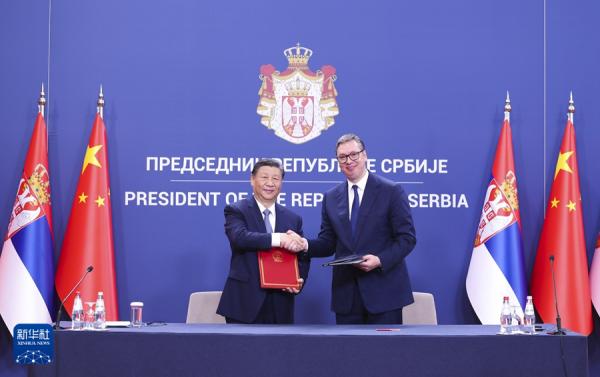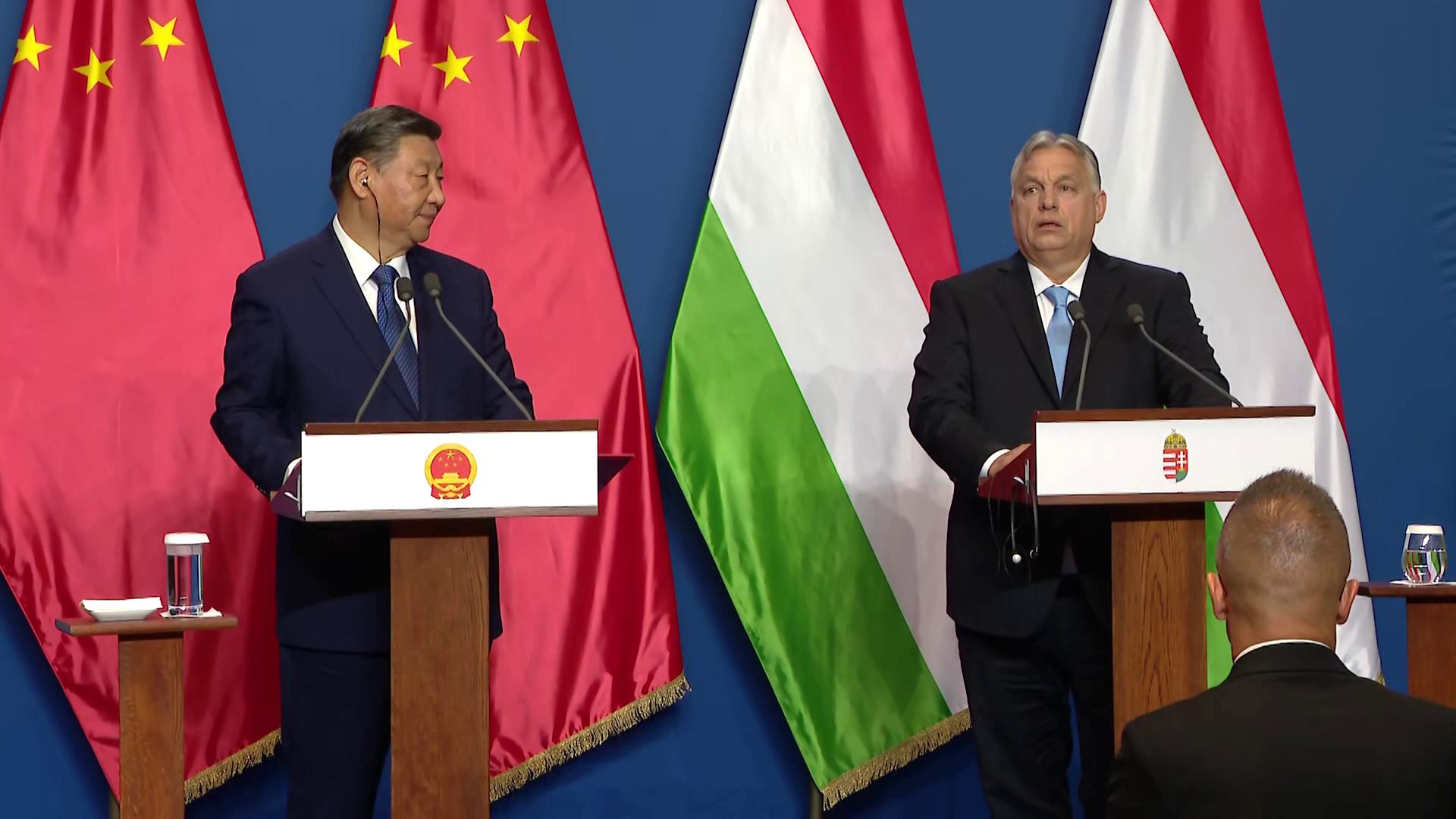Serbia-Hungary-China: the triumvirate of those dissatisfied with Brussels New type of interrelationship model
Chinese President Xi Jinping's visits to Serbia and Hungary differ in their very essence from the "texture" of his trip to France. The academicism, if I may say so, of the French trip, even though part of it took place in a picturesque mountainous area, differed significantly from the sincerity in communication and open smiles displayed in Belgrade and Budapest.
Visually, this is easily seen through a mass of photos and videos, thanks to which even the naked eye can see both the strained relationship between Xi Jinping, on the one hand, and Emmanuel Macron and Ursula von der Leyen, on the other, and the proximity of the Chinese leader to Hungarian Prime Minister Viktor Orban and, especially, Serbian President Aleksandar Vucic. And this is not only about, say, the fact that the Chinese leader met directly with Orban and Vucic at the airport of these two capitals. It is not even just the fact that the heads of Serbia and Hungary based their welcoming speeches on mutual trust between the countries. Here, rather, there was a kind of symbolism of mutual understanding through the famous Chinese project "One Belt, One Road", an organic part of which is the construction of a railroad line from Belgrade to Budapest, financially supported by Beijing. And this economic connotation becomes a kind of embodiment of political closeness in a possible China-Serbia-Hungary triangle.
Western analysts paid special attention to China's huge financial injections into the mining and manufacturing industry in Serbia, where Beijing has become the owner of mines and factories. The focus was on the tire plant in Zrenjanin, in which the Chinese Linglong Tire has invested almost 1 billion dollars. So it was not spontaneous at all that Xi Jinping signed a document during his stay in Belgrade to raise relations from the level of strategic partnership to the level of "common vision of the future". And the removal of any financial and economic obstacles in the relationship between the countries after the entry into force of the Free Trade Agreement, as A. Vucic emphasized, becomes for Belgrade "a guarantee of the future", because Serbia, having received the opportunity to place its goods and services in China, within a few years can export to China more than 90% of local products without "any tariffs and restrictions" (in total, almost 30 documents were signed, affecting cooperation in infrastructure, trade, technology, etc.).

In turn, Xi Jinping signally emphasized the formation of Serbia as the first European country to create a "community of common destiny with China." In unison, A. Vucic described Xi Jinping as a "great world leader", thanks to whose activities "China has become a beacon of global development and progress", playing an "increasingly important leading role in international affairs."
And next door, symbolism of a different kind: Xi Jinping traveled to Belgrade on the 25th anniversary of the attack by the anti-Yugoslav coalition (Allied Force) that hit the Chinese embassy in Yugoslavia (killing three journalists). Although until today NATO claims that the attack was accidental, Beijing has its own opinion on the matter.
It is quite symptomatic that, shortly before the start of the official talks with A. Vucic on the terrace of the Palace of Serbia, Xi Jinping saw almost 15,000 citizens of Belgrade greeting his guest by waving the flags of both countries.
As for Beijing's investments in Hungary, they are in no small part aimed at producing electric cars in the country. On May 9, Hungarian Foreign Minister Szijjártó emphasized that in 2025, the first electric cars produced by the Chinese company BYD on the European continent will be built in Szeged, Hungary.

In the context of the political component of Xi Jinping's visit to Budapest, it is important to pay attention to his call to "use the elevation of relations to an all-weather comprehensive strategic partnership in the new era" as an opportunity to give "a powerful new impetus to bilateral cooperation and to create a better future for the two peoples". Note that the term "all-weather" was cited by virtually all Chinese information resources.
Xi Jinping summarized his speech at the joint press conference in the spirit of Hungary and China demonstrating to the world "a model for building a new type of international relations".
Naturally, the parties did not ignore the developments on the Russian-Ukrainian track. V. Orbán signally supported the Chinese peace initiative, not avoiding the desire to emphasize that in this area the voice of Budapest is "the only one in Europe that is on the side of war".
At the same time, Budapest and Belgrade expressed unequivocal support to Beijing on the Taiwan issue on the basis of "conformity with the principles of Chinese policy and public international law". Surely the above nuances clearly indicate China's special relations with Hungary and Serbia, which are currently much closer to Beijing than to their European neighbours.
There is no doubt that the aspect of "trade clashes" in Beijing's relations with the EU, which von der Leyen explicitly warned about, differs significantly from the whole "package of proposals" on the Sino-Hungarian and Sino-Serbian fields, where mutual understanding rules in all spheres. The latter point acquires important features for China, because in the context of problems on the Brussels-Beijing trade and economic platform, China is actively considering the reorientation of a certain part of its production enterprises to friendly countries, including the European continent.
It is quite obvious that the sharp contrast of the "Serbian-Hungarian-Chinese" situation with the framing of Xi Jinping's conversation with the head of the European Commission, as we discussed in the previous article, will not remain without a reaction from Brussels. Especially since the results of the Chinese leader's visit to Belgrade and Budapest confidently demonstrated how Beijing's "steely friendship" with these two capitals has acquired new geopolitical shades.
But in what format this reaction will follow - we will see in the near future.
Teymur Atayev, specially for Caliber.Az
The views and opinions expressed by guest columnists in their op-eds may differ from and do not necessarily reflect the views of the editorial staff.








